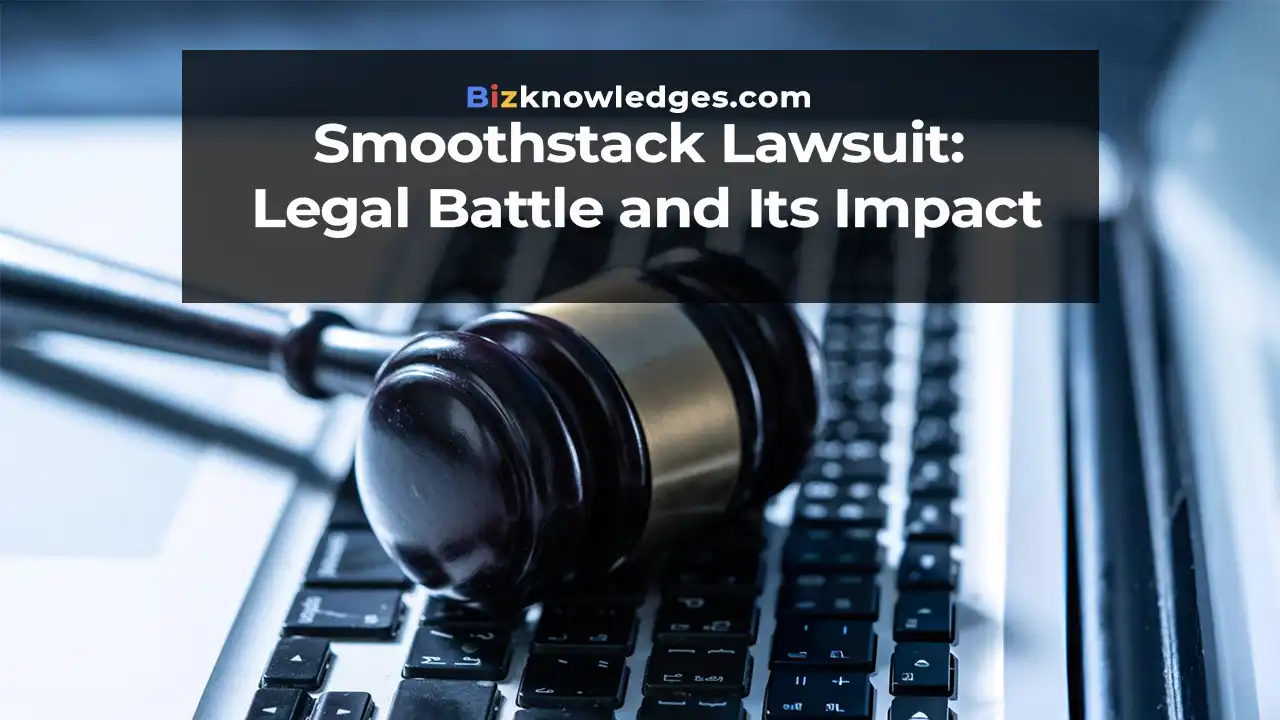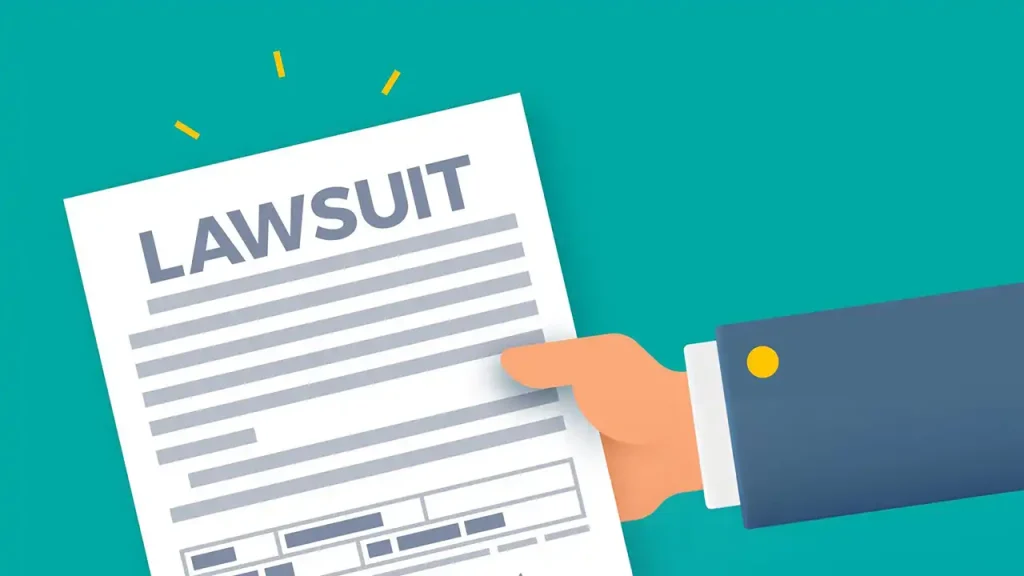Smoothstack Lawsuit: Legal Battle and Its Impact

In the evolving landscape of the tech industry, legal disputes can reshape the dynamics between companies and their stakeholders significantly. The Smoothstack lawsuit has emerged as a noteworthy legal skirmish, not only affecting the parties involved but also sending ripples across the sector. This article delves into the intricate details of the lawsuit, exploring its causes, the unfolding courtroom drama, and the broader implications it holds for the industry. Join us as we uncover the layers of this legal battle and analyze its potential to influence future industry standards and practices.
Background of Smoothstack Lawsuit and its Operations
Smoothstack, an IT talent incubator that prides itself on being a catalyst for change in the tech industry, has carved a unique niche. The company stands out by focusing on immersive, hands-on training programs designed to mold novices into seasoned IT professionals. Their operations revolve around a promising model: identifying latent talent, providing intensive training, and subsequently, placing these skilled individuals directly into IT roles that are in desperate need of such expertise.
Located in the heart of the tech revolution, Smoothstack operates with a mission to bridge the gap between the burgeoning demand for IT professionals and the available skilled workforce. They have established a significant presence across various states, partnering with numerous tech giants and startups alike. This collaborative approach not only amplifies their impact but also ensures that graduates of their programs step into roles that are critical and immediately impactful.

By integrating real-world projects into their training modules, Smoothstack ensures that each candidate is not just theoretically proficient but also acclimated to the practical challenges they will face in the tech arena. This methodical and immersive training regimen is what sets them apart, fostering a robust pipeline of ready-to-deploy IT professionals equipped to tackle the complexities of an ever-evolving tech landscape.
Overview of the Legal Battle
The trajectory of Smoothstack took an unexpected turn when the company found itself embroiled in a significant legal battle. This lawsuit not only challenged the operational ethics of the organization but also cast a shadow on its acclaimed training and placement practices. The core of the dispute revolved around allegations concerning the stringent contracts that participants were required to sign before entering the training programs.
According to the plaintiffs, these contracts contained several contentious clauses that they argued were excessively restrictive. The primary issue highlighted was the “employment binding” aspect, where trainees were allegedly locked into long-term commitments with Smoothstack or its partner companies, often with penalties for early termination that were perceived as punitive.
The legal proceedings drew attention to the fine line between fostering career growth and potentially exploiting eager newcomers to the tech industry. Plaintiffs argued that the contracts inhibited their professional autonomy, compelling them to remain in positions or with companies that may not align with their career aspirations or personal circumstances.
This lawsuit opened up a broader dialogue about the ethical considerations of professional development programs that require binding commitments. It raised questions about industry standards for training contracts and whether such agreements fairly balanced company needs with individual rights and career growth.
Allegations against Smoothstack
The heart of the controversy surrounding Smoothstack centered on several serious allegations made by former trainees and employees. These allegations not only questioned the integrity of Smoothstack’s operations but also the ethical framework within which they operated their talent development programs.
Excessive Work Commitments
Firstly, former participants of the program accused Smoothstack of enforcing excessively long work hours during the training phase without adequate compensation. They claimed that the intense workload far exceeded what was reasonable for a training program, bordering on exploitative labor practices.
Restrictive Employment Contracts
Another major point of contention was the nature of the employment contracts that trainees were required to sign. These contracts reportedly included clauses that bound the employees to the company or its partners for a disproportionately long period post-training, with severe financial penalties for those who wished to leave earlier. This was seen as a tactic to lock in talent under unfavorable terms, limiting their career mobility and ability to explore other opportunities in the tech industry.
Misrepresentation of Job Placement and Salaries
Allegations of misrepresentation also surfaced, where Smoothstack was accused of misleading trainees about the types and locations of jobs available after completing the program, as well as the potential salaries. Some trainees claimed that the actual positions offered were not only below their skill level but also came with compensation far less than what was promised or typically expected in the industry.
Legal and Ethical Implications
These allegations collectively painted a picture of a company that potentially prioritized its growth and success at the expense of its trainees’ rights and well-being. The legal implications of these practices, if proven true, could range from breaches of labor laws to more severe charges of fraud and misrepresentation.
Legal Basis of the Lawsuit
The lawsuit against Smoothstack was built on a foundation of both statutory and contractual law violations, which provided a structured framework for the legal proceedings. The plaintiffs, comprised of former trainees and employees, asserted claims that highlighted various potential legal breaches by Smoothstack.
Breach of Contract
Central to the lawsuit was the accusation of breach of contract. Plaintiffs argued that Smoothstack failed to adhere to the terms agreed upon in the employment contracts. Specifically, they claimed that the actual job placements, working conditions, and compensation were not in line with what was promised prior to signing the agreements. This discrepancy between expectations set and reality faced formed a core argument for the breach of contract claims.
Labor Law Violations
Another significant aspect of the legal challenge involved alleged violations of labor laws. The plaintiffs pointed to the excessively long working hours during training, which they claimed were often uncompensated or undercompensated, violating fair labor standards. These practices were argued to not only breach specific labor statutes but also to contravene broader principles of equitable and just employment practices.
Misrepresentation and Fraud
The legal claims also extended to allegations of misrepresentation and fraud. Plaintiffs accused Smoothstack of deliberately misleading them about the nature of the training program, job placements, and potential earnings. This alleged deceit was argued to constitute fraudulent behavior, as it ostensibly manipulated trainees into committing to unfavorable terms based on inaccurate or exaggerated information.
Emotional and Economic Damages
Furthermore, the lawsuit addressed the emotional and economic damages suffered by the plaintiffs as a result of these alleged malpractices. The restrictive nature of the contracts and the purportedly misleading job prospects led to significant personal and professional repercussions for the individuals involved, which they sought to reclaim through legal means.
Seeking Remedies and Reforms
In pursuit of justice, the plaintiffs not only sought compensatory damages for the alleged breaches and misconduct but also pushed for injunctive relief. This would potentially require Smoothstack to alter its contractual practices and operational methodologies to prevent future occurrences of similar issues.
Smoothstack lawsuit Response
In response to the allegations and the ensuing legal battle, Smoothstack adopted a multi-faceted approach to address the concerns raised and defend their business practices. Their response was comprehensive, aiming not only to counter the legal accusations but also to restore and maintain the company’s reputation.
Legal Defense
Smoothstack’s initial legal strategy involved a detailed examination of the contractual agreements that were central to the lawsuit. The company’s legal team argued that all contractual terms had been fully disclosed and agreed upon by the participants at the outset of the program. They contended that the contracts were legally binding and that the terms were within the bounds of standard industry practices.
Transparency and Communication
On the public relations front, Smoothstack sought to enhance transparency regarding their operations and training programs. They issued press releases and public statements detailing the structure of their programs, the nature of the contracts, and the opportunities available to trainees post-completion. This move was aimed at clarifying any misconceptions and reassuring current and future participants of their commitment to ethical practices.
Revisiting Contractual Practices
In light of the lawsuit, Smoothstack also reviewed their contractual agreements to ensure clarity and fairness. They announced initiatives to revise some of the contentious clauses, particularly those relating to the binding period and the financial penalties for early termination. These changes were positioned as a testament to Smoothstack’s dedication to fair labor practices and their adaptability to constructive feedback.
Engagement with Stakeholders
Smoothstack increased its engagement with all stakeholders, including trainees, employees, and industry partners, to gather feedback and build a more supportive community. They held town hall meetings and roundtable discussions to address concerns directly and to foster a more inclusive and supportive environment.
Commitment to Ethical Standards
Finally, Smoothstack reiterated their commitment to maintaining the highest ethical standards in their operations. They pledged ongoing reviews of their practices to prevent any future legal or ethical issues, emphasizing their role as a responsible stakeholder in the tech industry.
Impact of the Lawsuit on Smoothstack’s Reputation
The lawsuit against Smoothstack had far-reaching implications for the company’s reputation, both within the tech industry and among its network of current and prospective trainees. As the legal proceedings unfolded, the public scrutiny intensified, leading to a critical examination of Smoothstack’s business practices and ethical standards.

Immediate Repercussions
Initially, the lawsuit cast a shadow over Smoothstack’s credibility. Potential trainees and partners expressed concern over the allegations, particularly regarding the fairness of the employment contracts and the transparency of the job placements. The media coverage, often highlighting the most contentious aspects of the lawsuit, exacerbated these concerns, leading to a wary perception of the company.
Industry Response
Within the tech industry, the reaction was mixed. Some industry observers argued that the lawsuit highlighted a need for greater regulatory oversight in tech training programs, suggesting that such incidents could undermine trust in these essential services. Conversely, others saw it as an isolated incident, possibly reflective of the rapid growth pressures that many such companies face.
Public Perception and Brand Damage
For the public, particularly those considering careers in tech, the lawsuit served as a cautionary tale about the terms and conditions of training programs and employment contracts. Smoothstack’s brand, once synonymous with innovation and opportunity, now had to contend with associations of potential exploitation and unfair practices.
Long-Term Implications
However, the long-term impact depended significantly on Smoothstack’s response and the outcome of the lawsuit. By taking steps to address the issues raised and improve transparency and fairness, Smoothstack had an opportunity to restore its reputation. If the company successfully demonstrated a commitment to ethical practices and made tangible changes to its operations, it could regain trust and even emerge stronger, with robust systems in place to prevent future issues.
Strategic Adjustments
In response, Smoothstack undertook several strategic initiatives aimed at rebuilding trust. These included enhancing their communication strategies, implementing more rigorous oversight of contractual terms, and engaging more actively with the tech community to advocate for ethical training practices. These efforts were critical in mitigating the negative impacts of the lawsuit and in re-establishing Smoothstack as a trusted name in tech training.
Similar Lawsuits in the Tech Sector
The lawsuit against Smoothstack is not an isolated event in the tech sector; rather, it reflects a broader pattern of legal challenges that various tech companies face, often revolving around labor practices, contract disputes, and ethical concerns. Understanding these similar lawsuits helps contextualize the challenges within the tech industry and the evolving legal landscape surrounding employment and training practices.
High-Profile Tech Lawsuits
One of the most notable cases involved a leading tech giant, which faced multiple lawsuits over alleged anti-competitive practices in hiring and wage-setting. These lawsuits shed light on the so-called “no-poach” agreements that restricted competition for skilled labor, ultimately leading to significant settlements and changes in industry practices.
Another prominent lawsuit targeted a well-known ride-sharing company, focusing on the classification of drivers as independent contractors rather than employees. This distinction had major implications for benefits, compensation, and labor rights, sparking ongoing debates and policy changes concerning gig economy workers.
Common Themes in Tech Lawsuits
Several recurring themes emerge from these lawsuits:
- Contractual Disputes: Many tech companies have faced legal scrutiny over contracts that impose restrictive terms on employees or contractors, similar to the allegations against Smoothstack. These include long binding periods, severe penalties for breaches, and non-compete clauses that limit career mobility.
- Labor Violations: Allegations of unpaid overtime, failure to provide legally mandated benefits, and poor working conditions are common in the tech sector, reflecting the intense pressure and rapid pace of this industry.
- Misrepresentation of Opportunities: Like the accusations faced by Smoothstack, several companies have been sued for misrepresenting job roles, career advancement opportunities, and compensation, leading to charges of fraud and deceit.
- Ethical and Legal Breaches: Beyond labor issues, tech companies also grapple with lawsuits related to privacy violations, unethical data practices, and breaches of trust with consumers and business partners.
Impact on the Industry
These lawsuits have a profound impact on the tech sector, prompting companies to revisit their policies and practices. They lead to greater regulatory scrutiny and often result in more stringent industry standards for employment contracts and labor practices. Moreover, they highlight the need for transparency and ethical conduct in managing the workforce, crucial for maintaining trust and sustainability in the tech ecosystem.
Looking Ahead
As the tech industry continues to evolve, companies are increasingly aware of the legal and ethical implications of their operations. The lessons drawn from these lawsuits, including the case against Smoothstack, underscore the importance of adhering to fair labor practices, honoring contractual obligations, and maintaining a transparent, ethical approach to business operations. This awareness is not only crucial for legal compliance but also for fostering innovation and growth in a responsible manner.
Conclusion
The lawsuit against Smoothstack, reflective of broader challenges in the tech sector, underscores the critical importance of ethical practices and legal compliance in business operations. Such legal disputes not only impact the companies involved but also shape industry standards, influencing policy reforms and employment practices across the sector. For tech companies to thrive and maintain trust, a commitment to transparency, fair labor practices, and genuine respect for contractual obligations is essential. As the tech landscape continues to evolve, these principles will remain pivotal in navigating the complexities of growth, innovation, and workforce management in a rapidly changing world.
